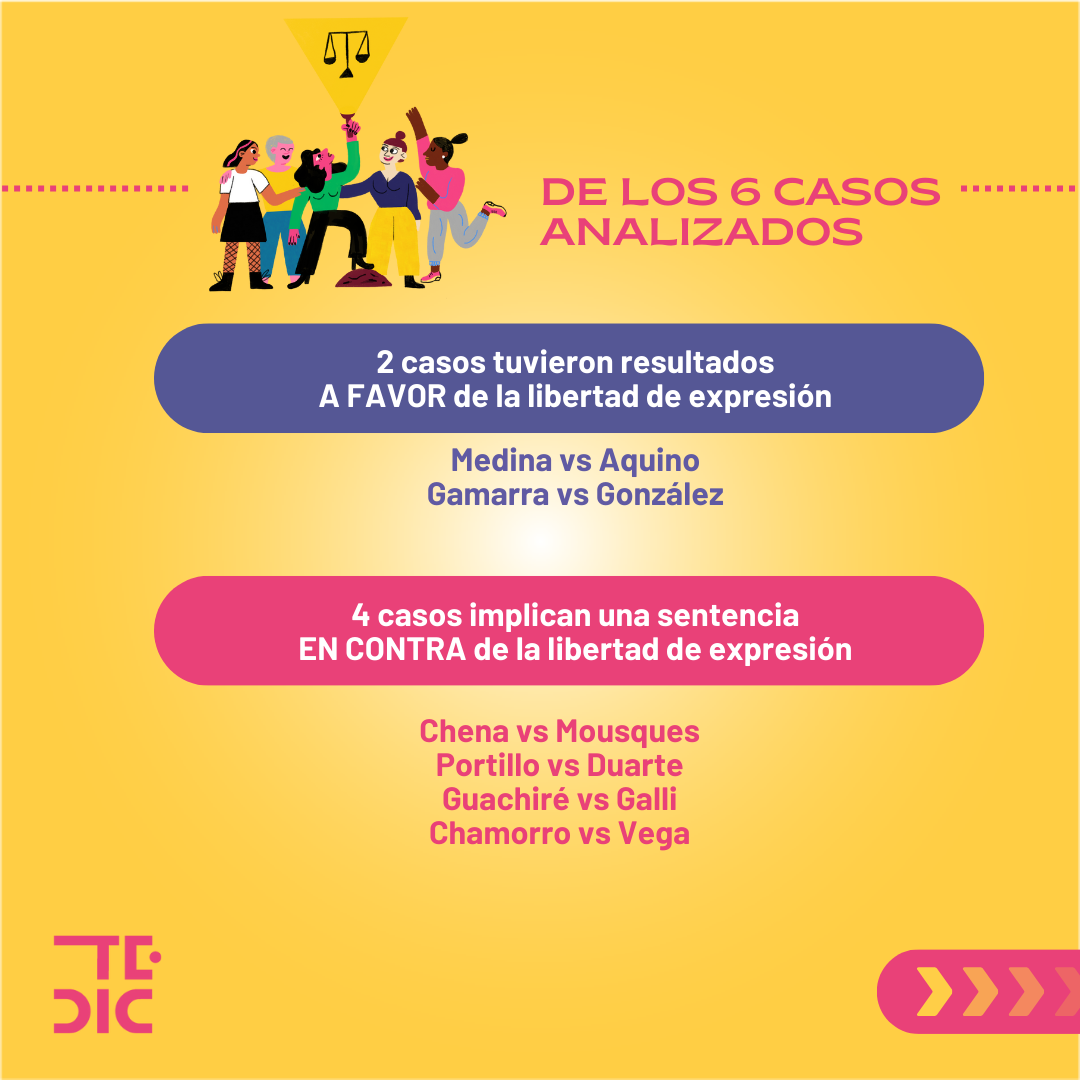
In this new research, we take a close look at six legal cases, involving officials and public figures, under Law 5777/16, which aims to provide comprehensive protection for women against all forms of violence in Paraguay. In this exploratory study, we delve into how the application of this law is generating some controversies, especially regarding prior censorship and the freedom of expression of journalists and communicators. This research was reviewed and originally published by the Center for Studies on Freedom of Expression (CELE) at the University of Palermo, Buenos Aires, Argentina.
Next, we present the six cases addressed in this study to illustrate how the law was applied and its implications for freedom of expression in Paraguay.
Analysis of the 6 Cases under Law 5777/16
These 6 cases share a common pattern: all involve public figures. These people, being public, must be willing to tolerate criticism and diverse opinions. While States must guarantee freedom of expression, public figures must be prepared to accept and listen to different opinions. Of the 6 analyzed cases, 2 had outcomes in favor of freedom of expression (Medina vs Aquino and Gamarra vs González). The other 4 cases resulted in a ruling against freedom of expression (Chena vs Mousques; Portillo vs Duarte; Guachiré vs Galli, Chamorro vs Vega) which is concerning us.
Case 1: Mabel Portillo vs. Gloria Duarte
Journalist Mabel Portillo was accused of psychological violence by the mayor of Yataity del Guairá, Gloria Duarte, after criticizing the management of municipal funds.This case highlights the tension between journalistic criticism and legal protection against violence, with a court ruling that limited the journalist’s freedom of expression.
Case 2: Christian Chena and RDN vs. Gisele Mousques
Christian Chena, owner of the RDN media, faced judicial restrictions after being reported by Gisele Mousques, wife of the politician Darío Filártiga. A judge prohibited Chena from mentioning Mousques in digital media, suggesting an interpretation of the law that restricts freedom of expression instead of adequately protecting it.
Case 3: Alfredo Guachiré vs. Celia Galli
Journalist Alfredo Guachiré published an article implicating Natalicio Chase, president of ESSAP, and his wife Celia Galli in a fraud case. Galli used Law 5777/16 to accuse Guachiré of violence against women, a clear example of how certain public figures are using the law to silence criticism.
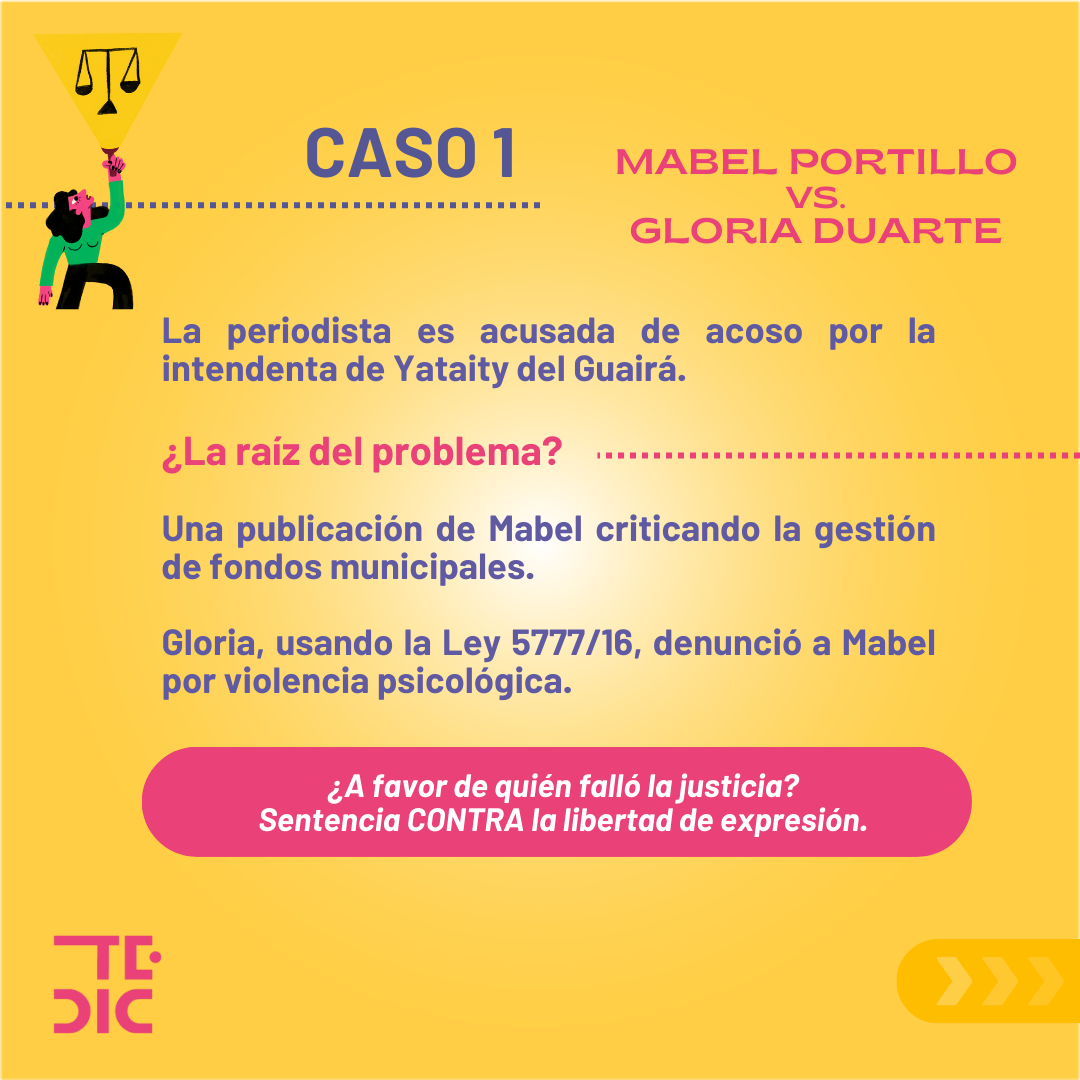
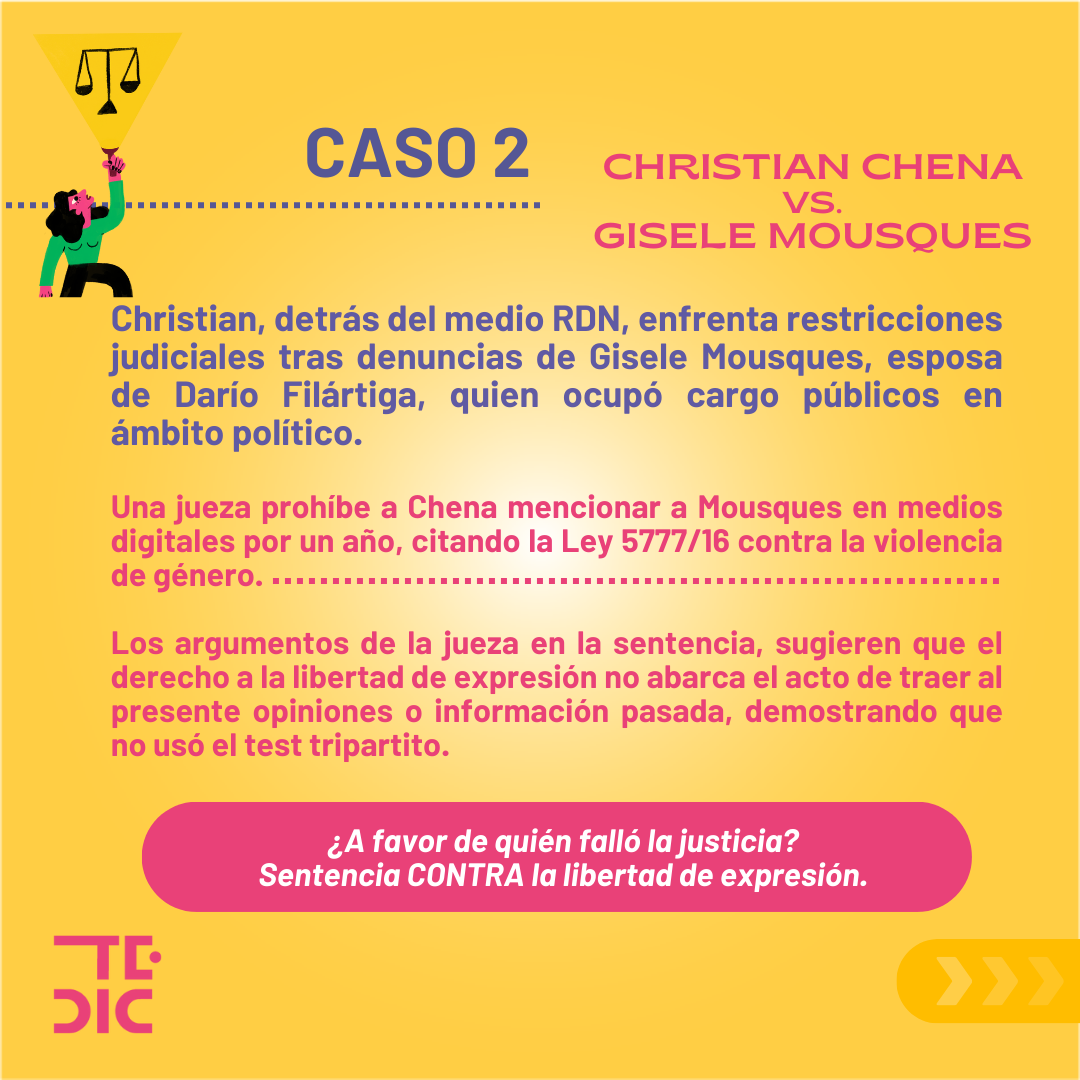
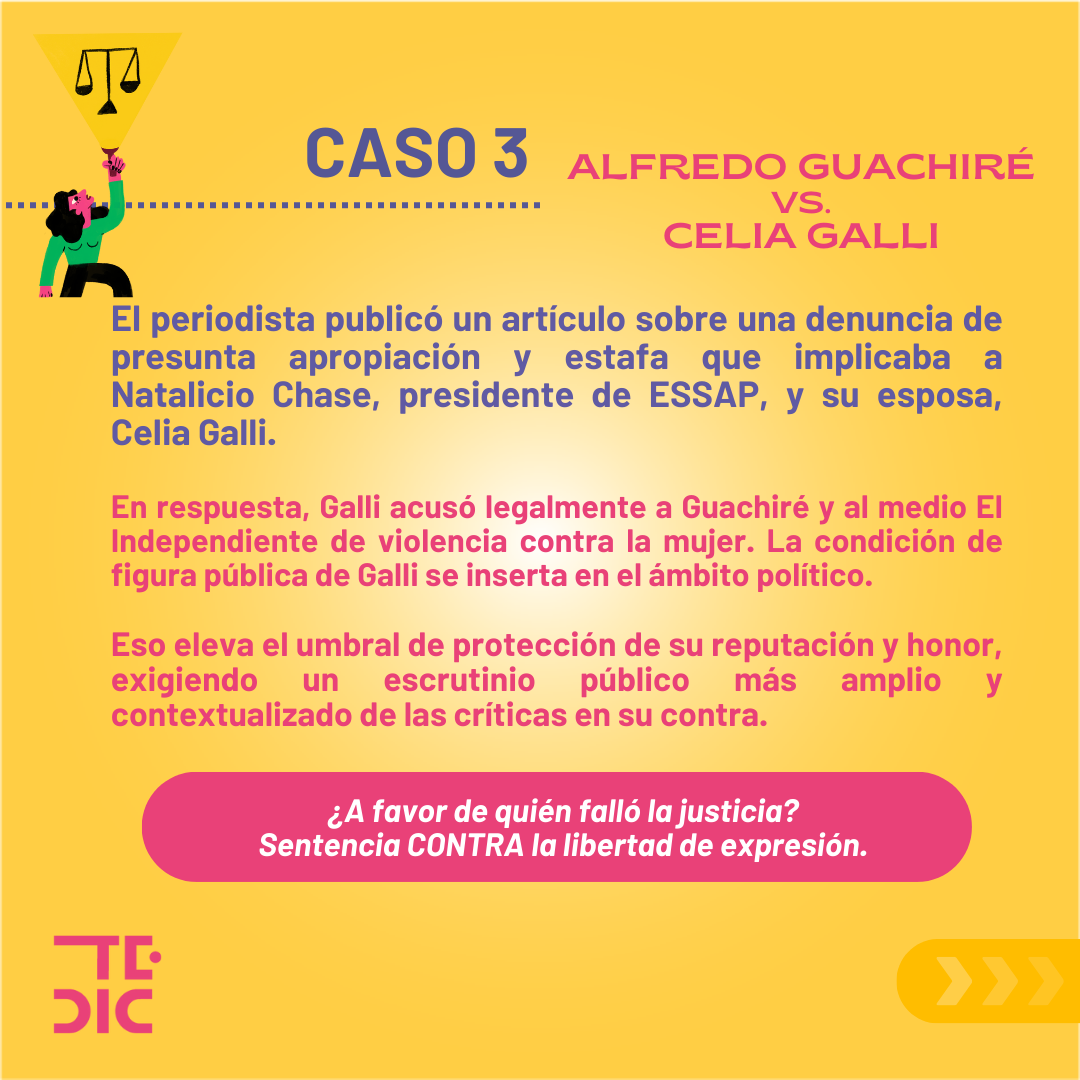
Case 4: Letizia Medina vs. Norma Aquino Letizia
Medina faced precautionary measures for publications considered defamatory by Senator Norma Aquino. In this case, the court ruled in favor of freedom of expression, emphasizing the need to correctly apply the tripartite test to distinguish between harassment and free expression.
Case 5: Rodrigo Gamarra vs. Kattya
González Rodrigo Gamarra was accused of defamation by politician Kattya González, who alleged personal and defamatory attacks. The ruling in favor of freedom of expression in this case emphasize the importance of protecting critical discourse, especially in political contexts.
Case 6: Fredy Chamorro vs. Claudia Vega
Journalist Fredy Chamorro revealed irregularities in the management of the Encarnación District Hospital by Claudia Vega, who responded with a complaint of harassment and threats. This case resulted in a ruling against freedom of expression, showing how the law can be used to inhibit journalistic investigation.
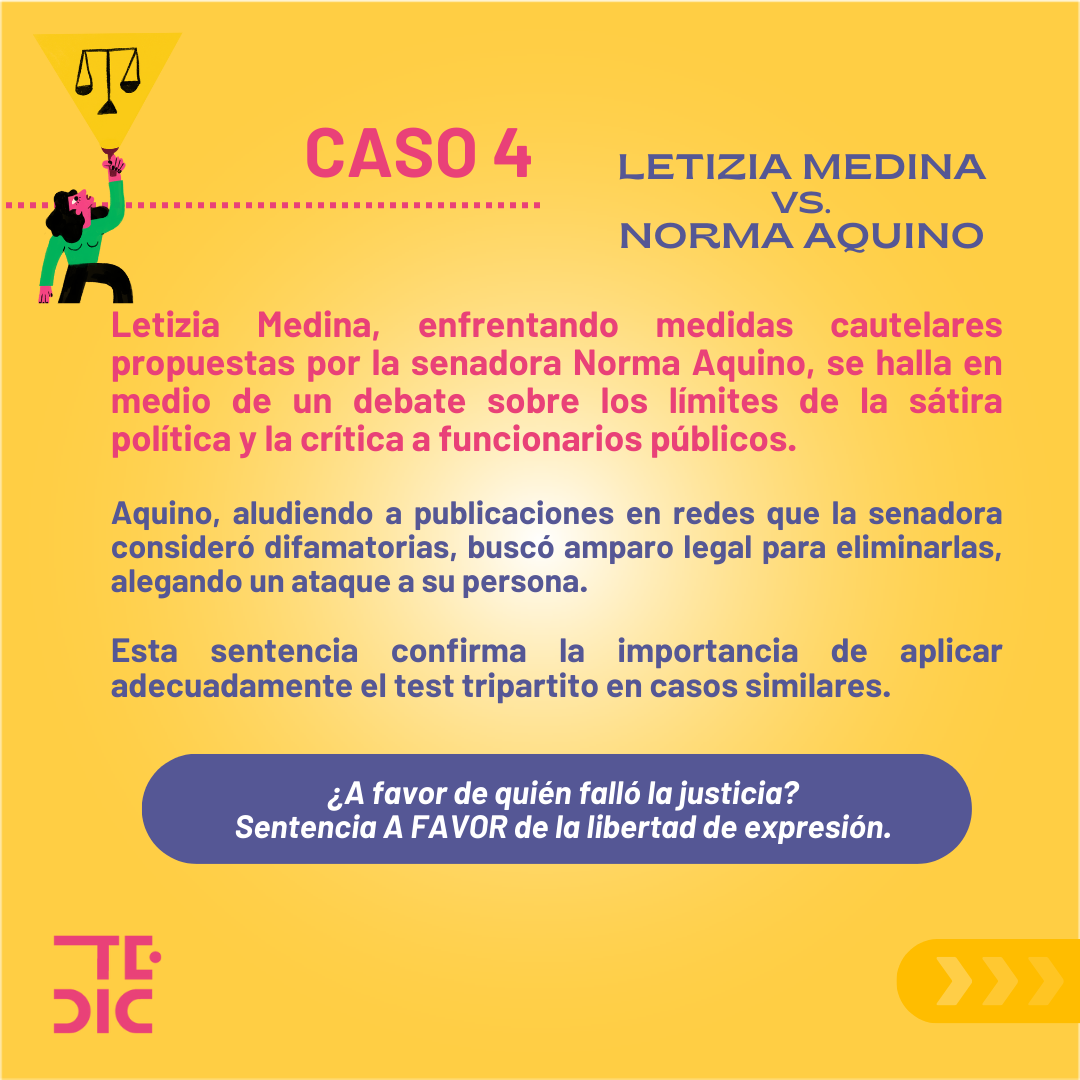
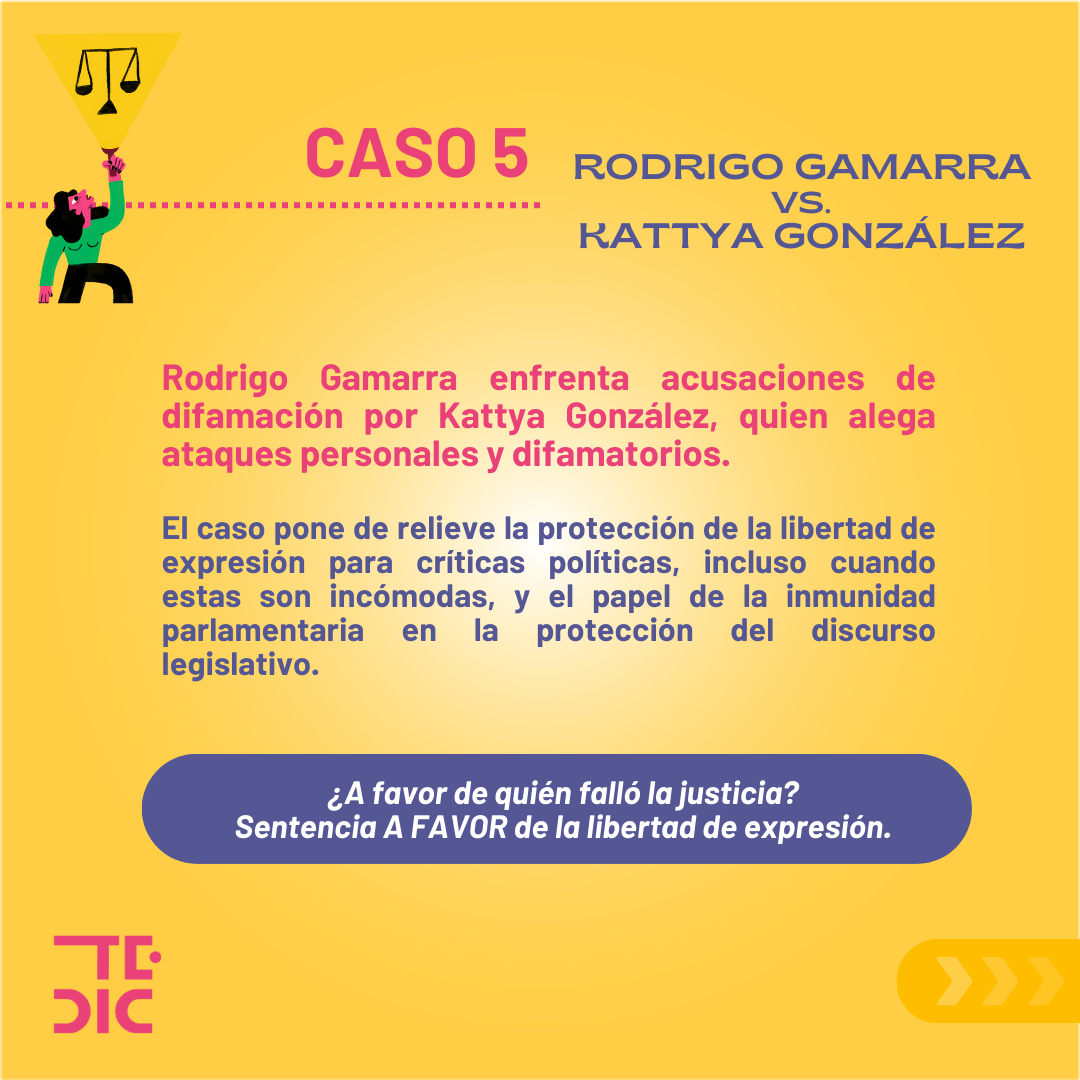
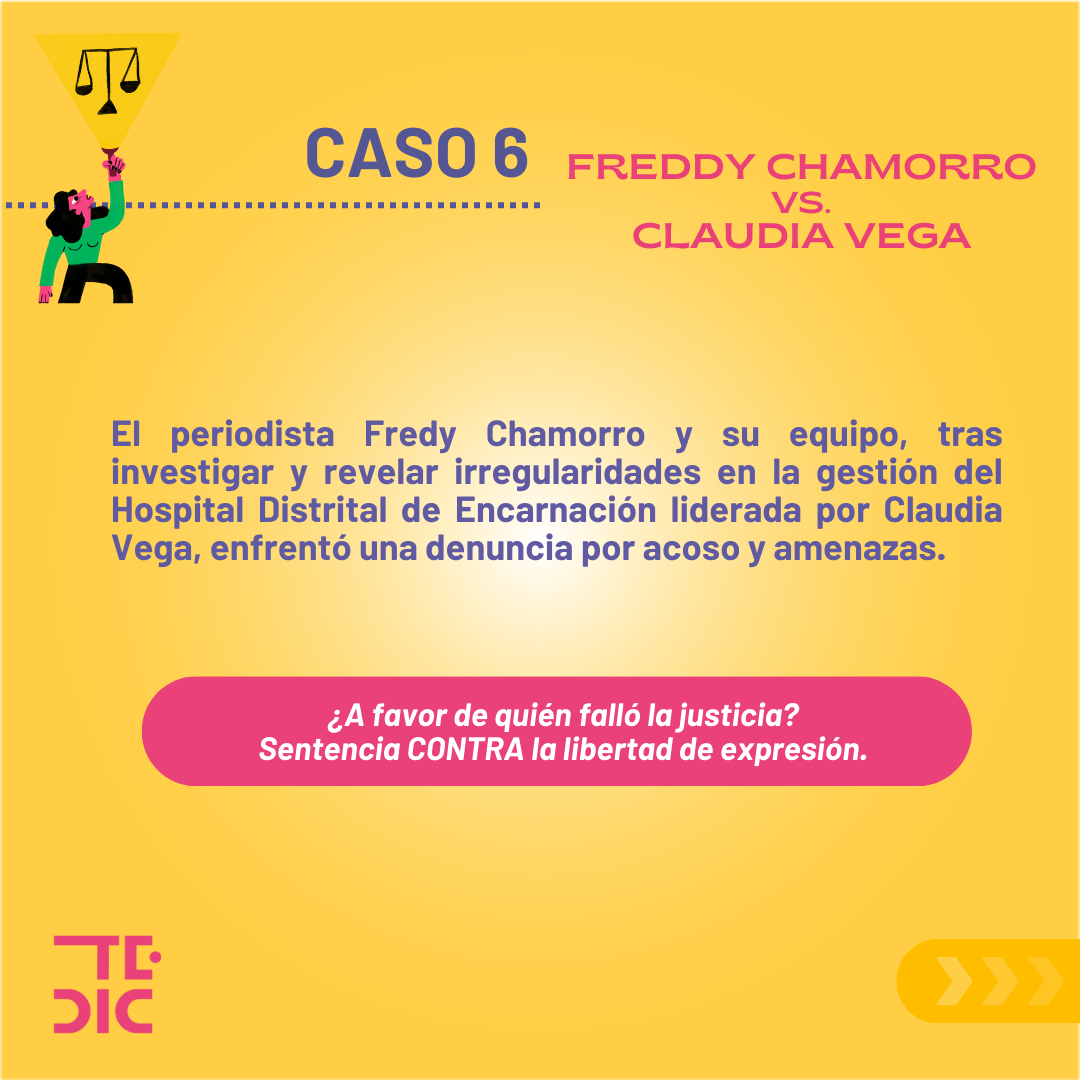
By analyzing these cases, we aim to understand how the mentioned law can be interpreted restrictively, impacting diversity of opinions, humorous creativity, and press freedom in the country. These examples suggest that while the law is crucial for the protection of women, it needs a review to prevent it from becoming a tool that unduly restricts public debate.
Key findings
- The need for a balanced approach that protects both women’s rights and freedom of expression and due process of law in a democratic society. The weighing of both rights must be differentiated in cases of public interest and public person. It is important to recognize that there are legitimate situations in which similar measures may be necessary, such as when a person with a history of violence is prohibited from mentioning or addressing their ex-partner through messaging and social networks.
- The importance of distinguishing between harassment and freedom of expression, highlighting the improper uses of this law in matters of public interest.
- Judicial decisions do not clarify how the concepts of violence defined in Law 5777/16 are applied. Additionally, there is a problematic connection observed between critical or questioning expressions towards women and forms of symbolic violence, without a precise or well-founded analysis on the matter.
Specific recommendations
- Regulate in a precise and detailed manner the application of Law 5777/16 and Law 1600/00 to prevent possible abuses by the Courts and guarantee effective protection for victims of violence: It is crucial to establish clear and transparent procedures for the request, evaluation, and application of the law, especiallythe precautionary measures contemplated in this law, ensuring full respect for constitutional and international principles of freedom of expression.
- Provide appropriate training to professionals in charge of applying these measures,including judges, prosecutors, lawyers and police personnel, on issues related to gender violence, human rights and freedom of expression: This training should include a gender perspective, sensitivity to the specific needs of victims, and a clear understanding of the international principles and standards applicable in the matter.
- Establish effective monitoring and supervision mechanisms to ensure the proper compliance with the law and prevent possible abuses in the application of precautionary measures: This could include the establishment of independent oversight bodies and the implementation of systems for monitoring and periodic evaluation of cases.
- Improve the concepts of gender violence facilitated by technology in Law 5777/16 to include the identification of types of violence in this digital space.
Judgments of the Inter-American Commission of Human Rights (IACHR)
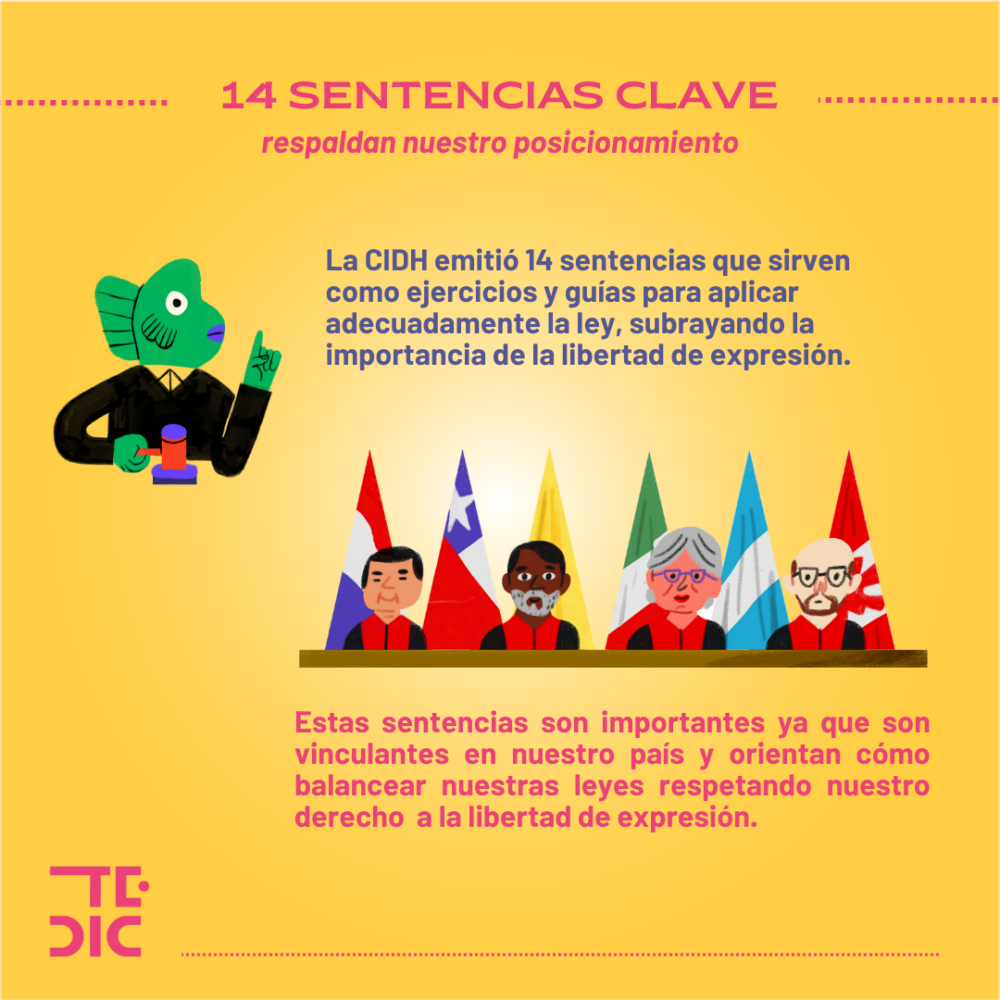
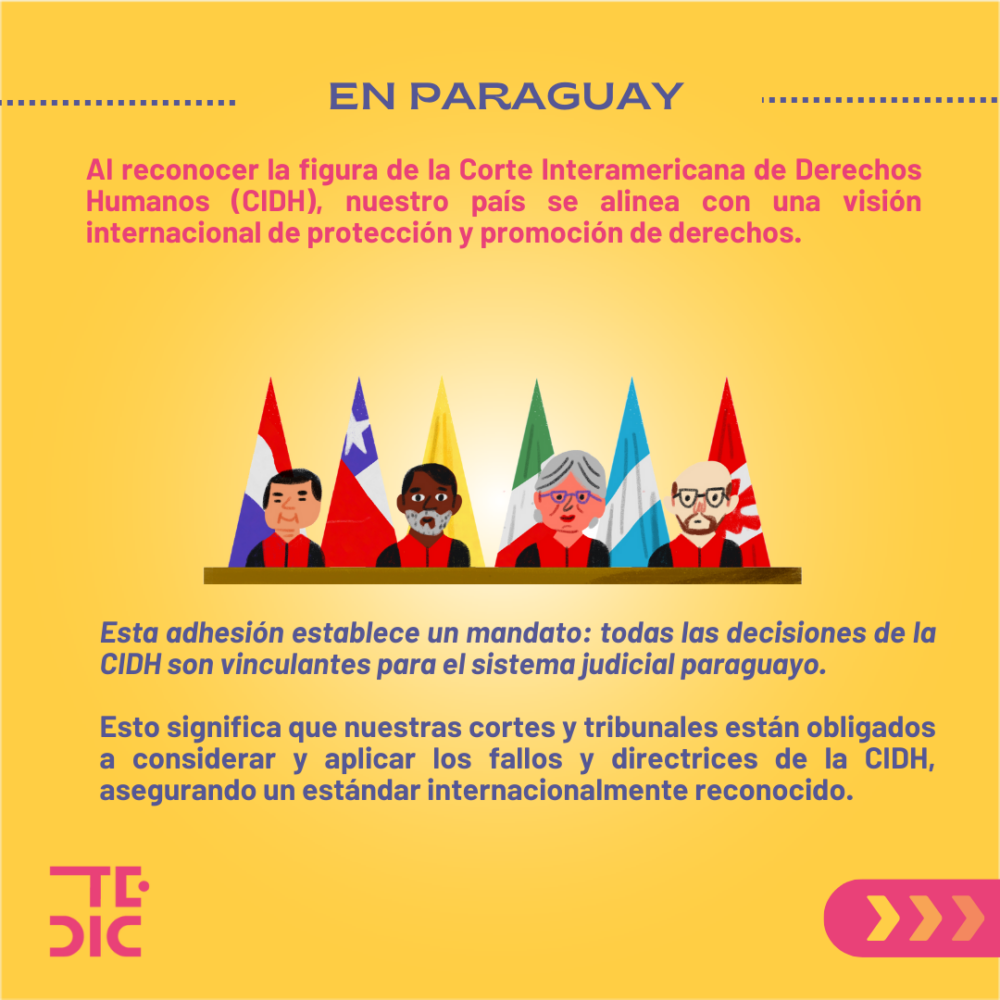
In Paraguay, the commitment to human rights transcends our national borders.By recognizing the figure of the Inter-American Court of Human Rights (Inter-American Court), our country aligns itself with an international vision of protection and promotion of rights.
This adhesion establishes a mandate: all decisions of the Inter-American Court are binding on the Paraguayan judicial system. This means that our courts and tribunals are obliged to consider and apply the rulings and guidelines of the Inter-American Court, ensuring an internationally recognized standard. The Inter-American Court issued 14 rulings that are essential exercises to properly apply the law, underscoring the importance of freedom of expression.These rulings were identified in our research and support both the analysis and our position in favor of freedom of expression.All of these concerns were also addressed in the meeting with Pedro Vaca, the Special Rapporteur for freedom of expression (RELE) of the Inter-American Commission on Human Rights (Inter-American Court) of the OAS, which was led by Dr. Alejandra Peralta Merlo.The information provided was integrated into the monitoring carried out by RELE on Law 5777/16 and the impact it is having on freedom of expression in Paraguay.
For more details about each case and our reform proposals, we invite you to consult and download our full report here.

 Regarding the trends in the Antipyrawebs Observatory in 2023
Regarding the trends in the Antipyrawebs Observatory in 2023  [Research] Technology-facilitated gender-based violence against women politicians in Paraguay
[Research] Technology-facilitated gender-based violence against women politicians in Paraguay